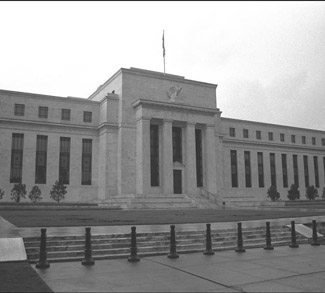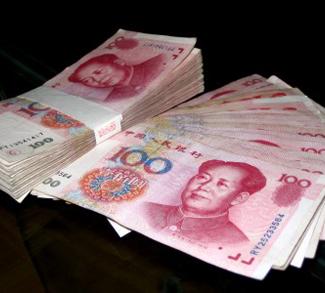Summary
China’s interference in markets to limit its currency appreciation is under increasing fire from US politicians who claim that the policy is costing American jobs. But several recent studies indicate that changing China’s currency policies alone would not necessarily benefit the US economy or its workers.
Analysis
Attacking China over its trade and currency policies – in light of a US economy that refuses to produce new jobs – has become almost a cardinal principle of American politics of late. On 11 October, the US Senate passed a bill that would allow for new tariffs on Chinese exports to the United States if China continues to undervalue its currency. The bill was championed by lawmakers from manufacturing-heavy states, who are worried that cheap Chinese exports are killing American jobs. “I don’t believe you have a middle class in America without a vibrant manufacturing base,” said Republican Senator Jeff Sessions about the bill. “We’ll stand up and take our lumps and take our gains in a fair competition.”
Additionally, the Obama administration announced just last month the filing of a complaint against China with the World Trade Organization, over China’s treatment of chicken imports. A press release from the US Trade Representative said the case was filed “to protect jobs in America’s poultry processing sector.”
The chicken case is the just the latest in a series of complaints filed by the US against China in the WTO related to products ranging from rubber to wind power equipment to steel.
With the Republican Party’s race to choose a nominee heating up, China is emerging as a major foreign policy topic – and frontrunner Mitt Romney is leading the charge. In a televised debate earlier this month, Romney promised on “day one” of his administration to issue an “executive order identifying China as a currency manipulator,” adding, “People who’ve looked at this in the past have been played like a fiddle by the Chinese. And the Chinese are smiling all the way to the bank, taking our currency and taking our jobs and taking a lot of our future.”
In response to this kind of fierce rhetoric, one leading Washington journalist opined that “China-bashing…is likely to characterize the 2012 fight for the White House.”
The Chinese government has maintained a policy since 1994 of intervening in currency markets to limit the appreciation of its currency, the renminbi (RMB), against the US dollar. Critics have charged that this policy has made Chinese exports cheaper, and US exports to China more expensive than under free market conditions. Some argue that the large annual US trade deficits with China has led to a widespread loss of US manufacturing jobs, and, conversely, that the reform of China’s currency policies, would lead to higher levels of US exports, and the creation of jobs at home.
C Fred Bergsten, an economist with the Peterson Institute for International Economics, has argued that a realignment of the RMB in relationship to the dollar could create hundreds of thousands of manufacturing jobs in the US. A reform of China’s currency policy, he wrote in Foreign Policy magazine, “would reduce the US global current account deficit [by] $100 billion to $150 billion. Every $1 billion of exports supports about 6,000 to 8,000 jobs in the United States.”
China’s response to these arguments, according to Andrew Leung, a Hong Kong-based trade consultant, is that RMB reform would “unlikely help exports and jobs as cheap goods from other emerging markets are a handy substitute.” “The RMB has already appreciated 55 percent since 1994,” he told ISN Insights, “but that appreciation didn’t help US exports or reduce US imports.”
There are other arguments to rebut the blame-the-RMB approach. First, the US-China balance of trade does not work like a seesaw, in which one side goes up when the other goes down. Rather, it is a more complex picture, in which, for example, China could opt to source products from other markets, including domestically, in the event of an appreciation of the RMB. Second, a reduction in imports from China would have a net negative effect on US economic activity and jobs. Third, the trade imbalance results not only from artificial currency exchange levels but also from low consumption rates and high savings rates among Chinese consumers.
Viewing the US and China in a bilateral economic relationship produces distortions in economic analysis, according to Philip Levy, a resident scholar at the American Enterprise Institute. “While there are certainly serious issues with China’s economic policies,” he told ISN Insights, “the bilateral trade balance can be a deeply misleading measure. Just because China may be the low-cost producer of a particular good does not mean that the United States is the next lowest-cost producer.”
In other words, a reduction in Chinese exports would not necessarily benefit the US economy or its workers. Recent studies generally support this view.
A Yale University study estimated that a 25 percent appreciation of the RMB would initially decrease US imports from China and lead to greater domestic production in the United States and increased exports to China. However, the study also estimated that benefits to the US economy would be offset by lower Chinese economic growth, because of falling exports, which would diminish its demand for imports, including those from the United States. In addition, the RMB appreciation would increase US costs for imported products from China and cause higher US short-term interest rates. The total effect of a 25 percent RMB appreciation, according to the Yale study, was estimated to have a negative effect on US demand and output and a loss of over 57,000 US jobs.
Another study, this one from the International Monetary Fund noted that “currency appreciation is important but alone yields only limited spillovers.” The IMF analysis showed that a 20 percent jump in the RMB would boost economic growth in the United States by between 0.05 and 0.07 percent. The impact of a firmer RMB on the trade balance would also be minimal. The US current account would rise between 0.02 percent and 0.08 percent of gross domestic product with a 20-percent climb of the RMB.
On the other hand, a more dramatic result could be achieved, according to the IMF, if China were to boost domestic consumption. The IMF supports “faster correction of the RMB…but it is by no means sufficient. Other reforms also are needed to reduce savings.” Levy likewise believes that “a frontal assault on Chinese currency practices is less likely to advance US interests” than pressure on other Chinese policies “such as those that discriminate against foreign investors and those that work in favor of politically-connected Chinese industries.”
Nor does Levy endorse the apparent reliance by the US on WTO dispute resolution mechanisms. “The dispute settlement system is valuable as a means of settling factual disputes over the application of settled agreements,” he said. “But if the dispute settlement mechanism is used to resolve political or unsettled points, it will eventually lose credibility and countries will cease to abide by its decisions.



